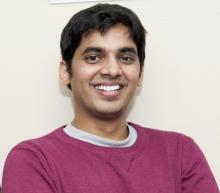Abstract
Traditionally, Digital Twins have been helping businesses make data-driven decisions, increase efficiency, and improve the overall performance of their physical assets. Recently, with the advancements in Artificial Intelligence, a new generation of digital twins has emerged, called Cognitive Digital Twins. These twins use AI techniques to analyse large volumes of data and provide insights that were not previously possible. However, creating Cognitive Digital Twins is a complex task that requires significant data processing capabilities and a deep understanding of the various data sources and their interconnections. It needs collaboration of IT, engineering, and business teams.
In this talk we will present the building blocks of a Cognitive Digital Twin and discuss the challenges and benefits of implementing one in an organisation. We will also showcase real-world examples of how companies have leveraged Cognitive Digital Twins to achieve significant improvements in areas such as predictive maintenance, process optimisation, and decision making.
Interview:
What's the focus of your work these days?
I work for Capgemini UK as the Intelligence Industry Lead. At Capgemini we define Intelligent Industry as the next generation of digital transformation, enabling businesses to drive new revenue and increased efficiency from connected products and intelligent operations. So most of the solutions that I'm designing and delivering are related to Internet of things (IoT), Artificial Intelligence (AI) and Digital Twins for clients in manufacturing, utilities and energy.
What's the motivation for your talk at QCon London 2023?
We are currently witnessing a trend in the world, the democratisation of Digital Twins. Digital Twins is not a new concept, but for many years this technology has been the privilege of a few companies that used them to monitor the behaviour and utilisation of their high-value products such as cars and planes. In recent years technologies like IoT and AI have helped create miniature, smart and cost-efficient sensors that can fit or retrofit any asset and collect data that we have never seen before. And as always, with new data we get new insights and more informed decision-making. So these types of technologies are making digital twins accessible and valuable to a wide spectrum of businesses both in private and public sectors.
How would you describe your main persona and target audience for this session?
My presentation is for technical and non-technical audiences. Enterprise Architects that are interested in the concept of Digital Twins and want to understand how to integrate architectures or Solution Architects that are deploying IoT/OT solutions today and want to see the next step in their digital transformation. My presentation is also for non-technical audiences, Chief Operations Officers, Chief Data Officers or Business owners who are interested in the state of digital twin technology and want to learn what digital twins have to offer to their business.
Is there anything specific that you'd like people to walk away with after watching your session?
First and foremost, I would like to offer clarity, “digital twins” has been a buzzword for quite some time, it is sometimes confused with simulation, metaverse, etc., so we will first define what a digital twin is and talk about two popular digital twin types. Then I will offer some lessons learned from my experience applying digital twins and provide clear steps to kick-start a Digital Twins transformation. I would be very satisfied if the audience goes to work the next day having an idea of how digital twins can be implemented in their organisation and start experimenting using the tools and architectures that they saw at QCon.
Speaker

Yannis Georgas
Intelligent Industry Lead @Capgemini
Yannis is the Intelligent Industry Lead at Capgemini, where he develops Industry 4.0 solutions for clients in Manufacturing, Energy, and Utilities. Before joining Capgemini, he led innovation projects in the fields of Smart Cities, Connected Autonomous Vehicles, and 5G Radio Access Networks as an innovation leader at Cisco UK&I. Yannis holds a master's degree in Industrial Engineering and an MBA from Imperial College London, which add to his expertise in driving new business growth through innovative use of technology.





